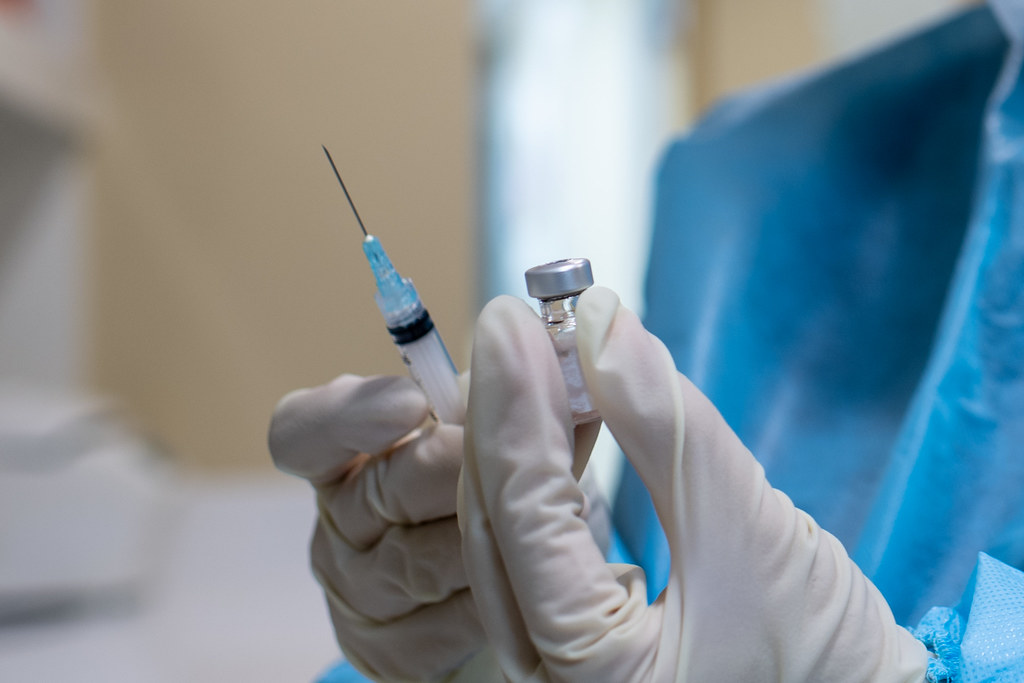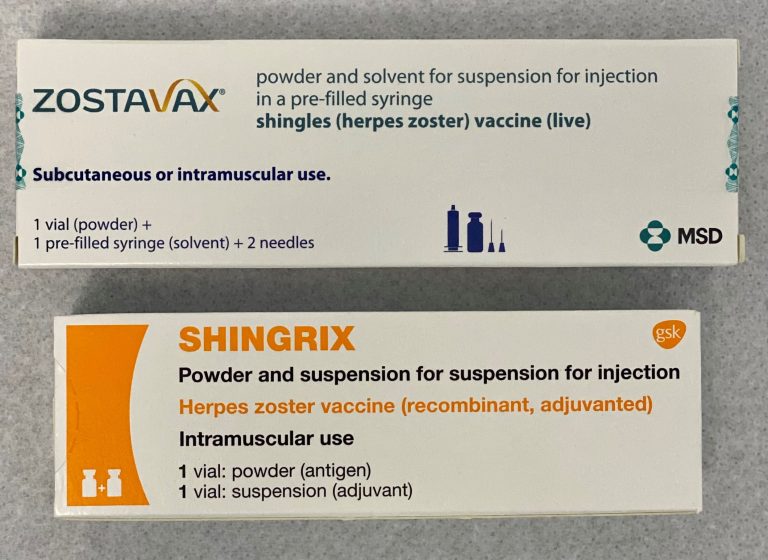GSK plc (LON/NYSE: GSK) has announced that new drug applications have been accepted for review by the China National Medical Products Administration and submitted to the Japanese Ministry of Health, Labour and Welfare for use of depemokimab in two indications.
· If approved, depemokimab will be the first ultra-long-acting biologic with 6-month dosing
· Submissions based on data from positive SWIFT and ANCHOR trials
· SWIFT-1 and -2 showed depemokimab reduced exacerbation and hospitalisation rates as an add-on therapy for patients with asthma with type 2 inflammation
· ANCHOR-1 and -2 showed depemokimab reduced nasal polyp size and obstruction compared to placebo
In China, the submitted indications are for an add-on maintenance treatment of asthma in adult and adolescent patients aged 12 and older with type 2 inflammation characterised by blood eosinophil count, and add-on maintenance treatment of adult patients with inadequately controlled CRSwNP. In Japan, the submitted indications are for treatment of severe or refractory bronchial asthma and CRSwNP inadequately controlled with standard treatment.
Kaivan Khavandi, SVP, Global Head of Respiratory/Immunology R&D, said “Simultaneous regulatory submissions for two indications highlight our confidence in depemokimab to help reduce the burden of both asthma and CRSwNP for patients and health systems. Our SWIFT and ANCHOR trials support depemokimab’s potential to suppress IL-5, a known driver of type 2 inflammation, to offer patients sustained inhibition of a key driver of their disease with just two doses per year.”
Depemokimab, a monoclonal antibody that targets interleukin-5 (IL-5), is the first ultra-long-acting biologic to be evaluated in phase III trials and be accepted for regulatory review for use in these conditions.1 Depemokimab’s extended half-life, high-binding affinity and potency, support six month (26 week) dosing regimens based on results from the SWIFT and ANCHOR trials.1-3 In asthma patients and patients with CRSwNP, these trials showed depemokimab could offer sustained inhibition of a key driver of their disease, and help achieve key clinical outcomes with a dosing schedule of just two injections per year.1-3 Longer intervals between doses have been shown to overcome barriers to optimal care such as patient adherence.4
IL-5 is a key cytokine (protein) in type 2 inflammation.1,5,6 Type 2 inflammation is typically identified by blood eosinophil count and is an underlying driver in many diseases.5 This type of inflammation is present in the majority of patients with difficult to treat asthma and can lead to exacerbations and hospitalisation.5,7 Type 2 inflammation is also present in up to 80% of people with CRSwNP and is associated with more severe disease and symptoms.8,12
Asthma is a major health burden in China affecting an estimated 46 million adults with approximately 15.5% reporting to have experienced an exacerbation requiring a hospital visit in the last 12 months.13
CRSwNP is a chronic condition that affects up to 4% of the general population, of whom 40% have uncontrolled disease.8,12,14 It is estimated that about 107 million people in China suffer from chronic sinusitis, about 1/3 of whom have chronic sinusitis with nasal polyps.8,15-17 In Japan, it is estimated that there are 2 million people with chronic sinusitis, of which about 200,000 are subject to surgery due to nasal polyps.18
Depemokimab is currently not approved in any country.
References
- Jackson DJ, et al. Six Monthly Depemokimab in Severe Asthma With an Eosinophilic Phenotype. NEJM. Published on September 9 at NEJM.org.
- ClinicalTrials.gov. Efficacy and Safety of Depemokimab (GSK3511294) in Participants With Chronic Rhinosinusitis With Nasal Polyps (ANCHOR-1) Available at: https://clinicaltrials.gov/study/NCT05274750 Accessed January 2025.
- ClinicalTrials.gov. Efficacy and Safety of Depemokimab (GSK3511294) in Participants With Chronic Rhinosinusitis With Nasal Polyps (ANCHOR-2) Available at: https://clinicaltrials.gov/study/NCT05281523 Accessed January 2025.
- Scarsi KK, Swindells S. The Promise of Improved Adherence With Long-Acting Antiretroviral Therapy: What Are the Data? Journal of the International Association of Providers of AIDS Care (JIAPAC). 2021;20.
- Global Initiative for Asthma. Global Strategy for Asthma Management and Prevention,2024. Updated May 2024. Available at: https://ginasthma.org/. Accessed January 2025.
- Heaney L, et al. Eosinophilic and Noneosinophilic Asthma: An Expert Consensus Framework to Characterize Phenotypes in a Global Real-Life Severe Asthma Cohort. Chest. 2021;160(3):814-830.
- Principe S, et al. Severe asthma: Targeting the IL-5 pathway. Clin Exp Allergy. 2021 Aug;51(8):992-1005
- Laidlaw TM, et al. Chronic Rhinosinusitis with Nasal Polyps and Asthma. J. Allergy Clin. Immunol. 2001;9(3):1133-1141.
- Bachert C, et al. Burden of Disease in Chronic Rhinosinusitis with Nasal Polyps. J Asthma Allergy. 2021;b 11;14:127-134. doi: 10.2147/JAA.S290424. PMID: 33603409; PMCID: PMC7886239.
- De Corso E, et al. How to manage recurrences after surgery in CRSwNP patients in the biologic era: a narrative review. Acta Otorhinolaryngol Ital. 2023;43(Suppl. 1):S3-S13.
- Chen S, et al. Systematic literature review of the epidemiology and clinical burden of chronic rhinosinusitis with nasal polyposis. Curr Med Res Opin. 2020;36(11):1897-1911.
- Bachert C, et al. EUFOREA expert board meeting on uncontrolled severe chronic rhinosinusitis with nasal polyps (CRSwNP) and biologics: Definitions and management. J Allergy Clin Immunol. 2021;147(1):29-36.
- Huang K, Yang T, Xu J, et al. Prevalence, risk factors, and management of asthma in China: a national cross-sectional study. Lancet. 2019; 394:407-418.
- van der Veen J, et al. Real-life study showing uncontrolled rhinosinusitis after sinus surgery in a tertiary referral centre. Allergy. 2017;72(2):282-290.
- Liu Z, et al. Chinese Society of Allergy and Chinese Society of Otorhinolaryngology-Head and Neck Surgery Guideline for Chronic Rhinosinusitis. Allergy Asthma Immunol Res. 2020;12(2):176-237.
- Wu Q, et al. Efficacy and safety of omalizumab in chronic rhinosinusitis with nasal polyps: a systematic review and meta-analysis of randomised controlled trials. BMJ Open. 2021 Sep;11(9):e047344.
- Wang Chengshuo, Zhang Luo. Biologics for the treatment of chronic rhinosinusitis with nasal polyps. Chinese Journal of Otolaryngology-Head and Neck Surgery, 2023, 58(3) : 193-199.
- JESREC Study About refractory eosinophilic sinusitis available at https://jesrec.jp/general/disease.html. Accessed January 2025









































